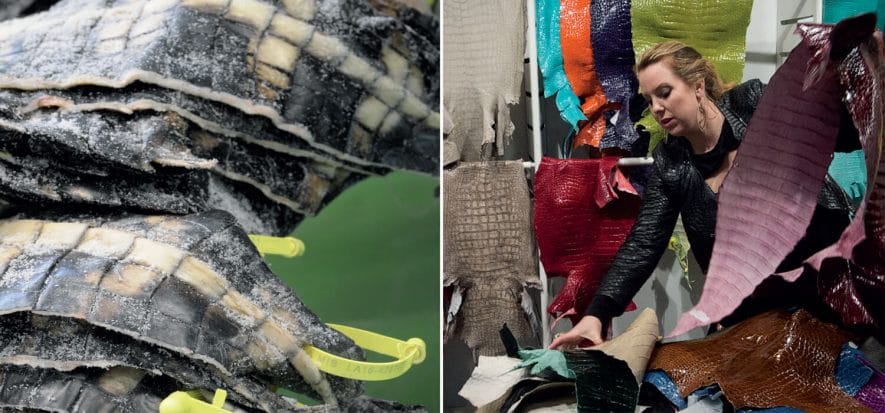The controversy about Hermès comes as no surprise. One could well expect it. In fact, the news about the brand’s investment in a crocodile factory farm in Australia could not possibly go unnoticed. Especially by the usual fringes of radical animal-rights activists, the ones who do not condone anything, most of all to fashion houses.
After waiting just for a few days, here it is, a Pavlovian conditioning captured by English-speaking press. Yet veg associations’ contumely has been sent a reply by experts’ certainties and, above all, by the industry equilibrium, which we tell you about in our Magazine .
The controversy about Hermès
Shall we provide a polemical standpoint example? Just read some statements made by Nicola Beynon, Humane Society International, while speaking to the Guardian. It is the same old story they tell in such circumstances: rearing animals and subsequently killing them is cruel so much so that several top fashion houses no longer do it. “It is insane – shouted Beynon – to invest in a type of industry which is no more fashionable”.
The replies
First and foremost, Grahame Webb, president of the crocodiles’ group at the International Union for Conservation of Nature, has replied to Beynon and his colleagues. While talking to the Guardian, he illustrated that, despite “fierce criticism”, these ventures, such as the one carried out by Hermès, are the “right thing” to do.
Why? Because focused investments can foster some projects which aim at the conservation of species and respect for best practice. As regards the allegation on exotic skins’ low appeal, instead, a prompt reply has been given by Robb Report. The magazine remarked that “Hermès products made from exotic skins are not only a highly marketable selection from catalogue, but the backbone” of its own identity.
In other words, exotic skins are “fundamental to a vast majority of the brand’s fashion designers”. Moreover, apart from harsh debates and controversies, “there are no signs of a downturn in the appeal of these products”. On the contrary, “investments in the supply chain show an opposite trend”.
The magazine
In the publishing issue of La Conceria, Christy Plott, American Tanning, has clearly explained how the alligator supply chain works. Due to his role, Plott is particularly involved in the matter.
On the one hand, his company is up to the processing of this material; on the other hand, because of a law formerly imposed in the State of California and now suspended, his work has ended up turning illegal. In the United States, the controversy on exotic skins is one of the chapters of the campaign against the use leather, promoted and supported by some parts of the public opinion.
For the records, brands often play a twofold role in such controversy, which affects, among others, kangaroos as well.
Click here to read La Conceria and find out more about subscription options
Read also:
- Hermès invests in Australia for a biggest crocodile factory farming
- California (temporarily) suspends ban on crocodile
- Christy Plott, the stop of California’s ban is better than good news











